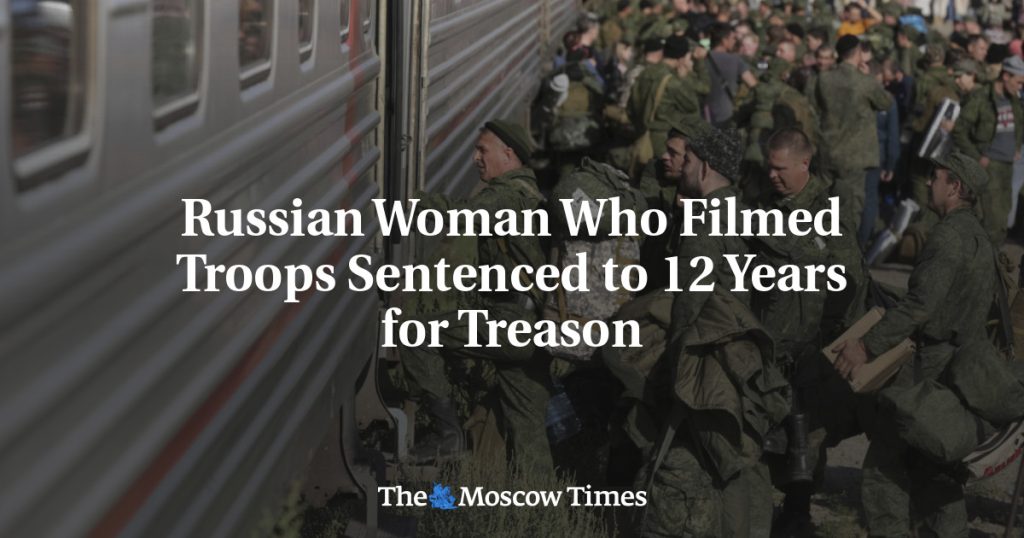A woman from Russia’s Far East has been sentenced to 12 years in prison for sharing footage of Russian troop movements with Ukraine. The woman, identified as Chita resident A.Yu. Sulimova, was detained on treason charges last July. She was accused of filming soldiers and military equipment heading from the Zabaikalsky region toward Ukraine and sending the footage to a Ukrainian border guard. Despite admitting her guilt, Sulimova described herself as a “staunch opponent” of Russia’s invasion of Ukraine and planned to flee to Ukraine upon receiving funds from the border guard.
The Zabaikalsky District Court found Sulimova guilty of high treason and sentenced her to 12 years in a medium-security prison. Treason cases in Russia are held behind closed doors due to the classified information involved. In 2023, during the second year of the war in Ukraine, Russian authorities opened a record number of treason cases. President Vladimir Putin signed a law raising the maximum penalty for “high treason” from 20 years to life imprisonment. This indicates the seriousness with which the Russian government is addressing cases of treason and espionage.
The increase in treason cases in Russia is a concerning trend, especially in the context of the conflict in Ukraine. Last month, a young woman from Moscow claimed she was instructed by phone scammers posing as Central Bank and FSB employees to pour green dye into a ballot box during Russia’s presidential election. The scammers allegedly shouted “glory to Ukraine” into the phone as she was arrested. These incidents highlight the complex nature of espionage and the use of unconventional methods to undermine state security.
The case of A.Yu. Sulimova sheds light on the risks associated with sharing sensitive information across borders, especially during times of conflict. Individuals who engage in such activities can face severe consequences, including lengthy prison sentences. The strict laws and penalties for treason in Russia serve as a deterrent to others who may consider engaging in espionage or aiding foreign powers. The government’s crackdown on treason cases reflects its commitment to protecting national security and preventing unauthorized disclosure of classified information.
The involvement of young individuals in such cases, as seen with Sulimova and the woman from Moscow, raises questions about the factors that drive individuals to commit acts of treason or espionage. It is essential to understand the motivations and influences behind such actions in order to address the root causes and prevent future occurrences. The government’s response to these cases demonstrates the seriousness with which such offenses are treated and the measures in place to deter potential offenders.
In conclusion, the sentencing of A.Yu. Sulimova to 12 years in prison for sharing footage of Russian troop movements with Ukraine underscores the government’s commitment to protecting national security and preventing acts of treason. The increase in treason cases in Russia, particularly during the conflict in Ukraine, reflects the complex geopolitical landscape and the risks associated with espionage. By imposing strict penalties for high treason, including life imprisonment, Russian authorities are sending a clear message about the consequences of betraying state secrets. It is essential to address the underlying motivations behind such actions and implement measures to prevent future incidents of espionage and unauthorized disclosure of classified information.


